China GDP growth slowed to 6.4% yoy in Q4, down from 6.5% yoy and matched expectation. For the whole year of 2018, growth slowed to 6.6%, lowest in 28 years since 1990. National Bureau of Statistics head Ning Jizhe said the impacts from trade war with the US are manageable. There were signs of stabilization in the economy over the past twos months. And he added the country has confidence and the capacity to achieve reasonable growth in 2019.
Other December data released today are positive though. Retail sales grew 8.2% yoy, up from 8.1% yoy and beat expectation of 8.1% yoy. Industrial production rose 5.7% yoy, up fro 5.4% and beat expectation of 5.3% yoy. Fixed assets investment grew 5.9% yoy, unchanged from November, but missed expectation of 6.0%.
While there were signs of improvements in Decembers, it’s generally expected that the Chinese economy will face downward pressure ahead. In particular, the risks of escalation in trade war with the US remains. Chinese Vice Premier Liu He is set to visit Washington on January 30-31 for another round of trade talks. At this point, little sign of progress is seen regarding the core concerns of the US, including intellectual property theft, forced technology transfer and dominance of state-owned enterprises.
More stimulus is expected from the authority to support the economy. The PBoC has already injected CNY 560B into the economy last Wednesday. The RRR was also lowered again earlier this year to free up Monday for small companies. Yet, it’s reported that Beijing was planning to lower its growth target to 6-6.5 percent this year.




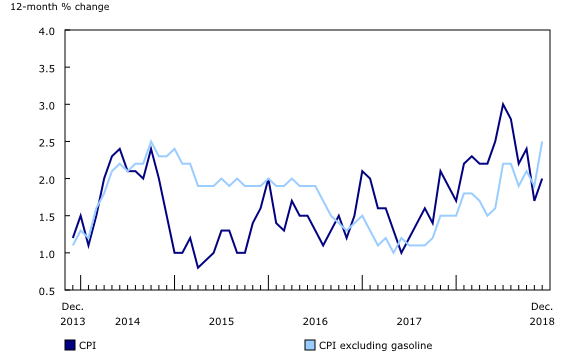
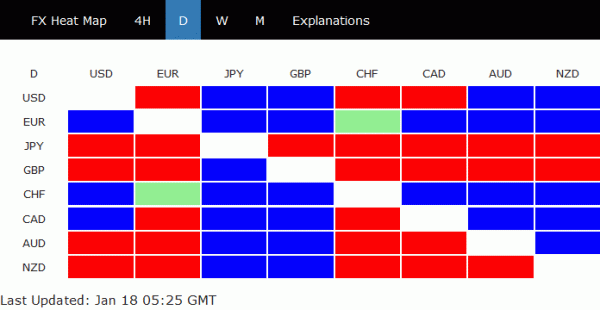
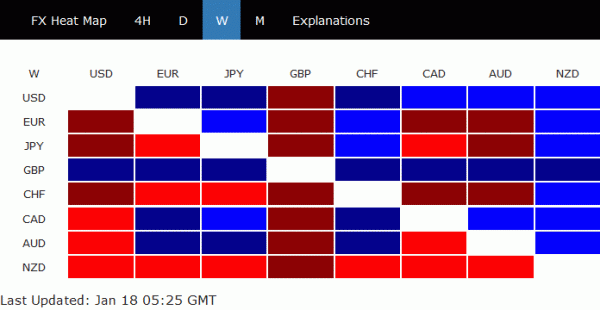
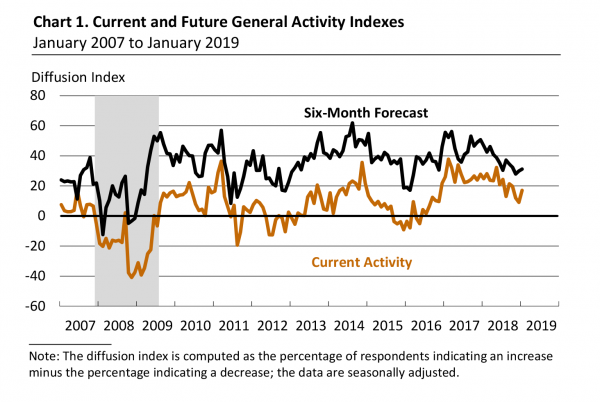
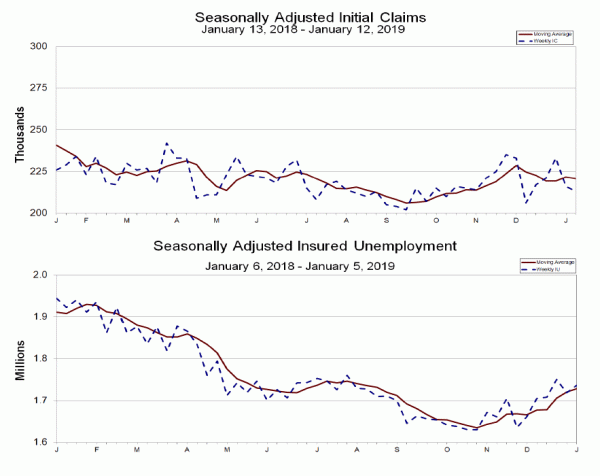
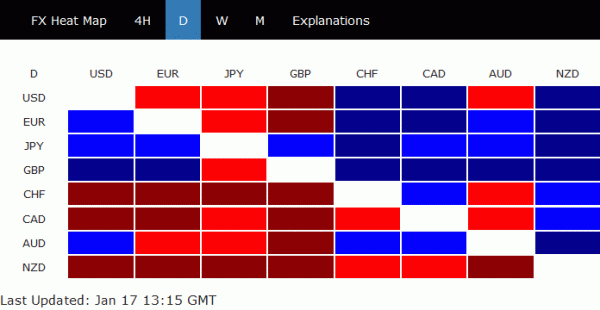
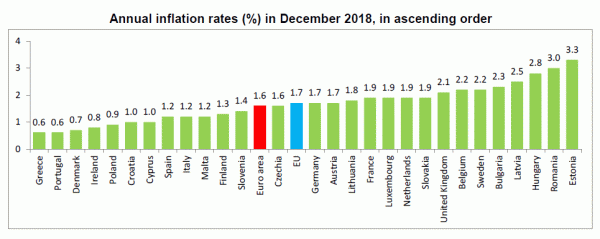

Asia update: Sentiments supported by stabilization in China Dec data, Yen higher
Asian markets trade mildly higher as the week opens. While China’s GDP slowed to lowest in 28 years in 2018, December data painted a picture of stabilization, with pick up in industrial production and retail sales. Sentiments were also supported by optimism over US-China trade negotiation. Focus will now move to UK Prime Minister Theresa May’s Brexit plan B, which she will table to the parliament today. Record US government shutdown is extending while it’s a holiday there too.
In the currency markets, Yen is trading broadly higher for now but strength is limited, in particular against Euro and Australian Dollar. Sterling is the second weakest one, continue to pare back last week’s Brexit chaos gains. But New Zealand Dollar is even weaker.
In Asian markets: